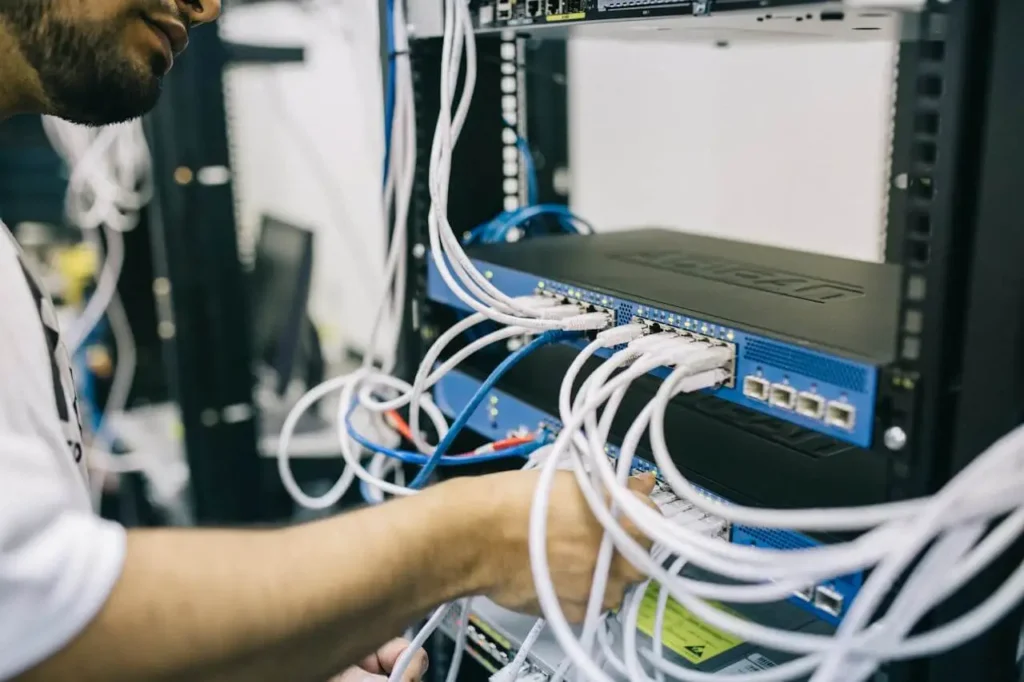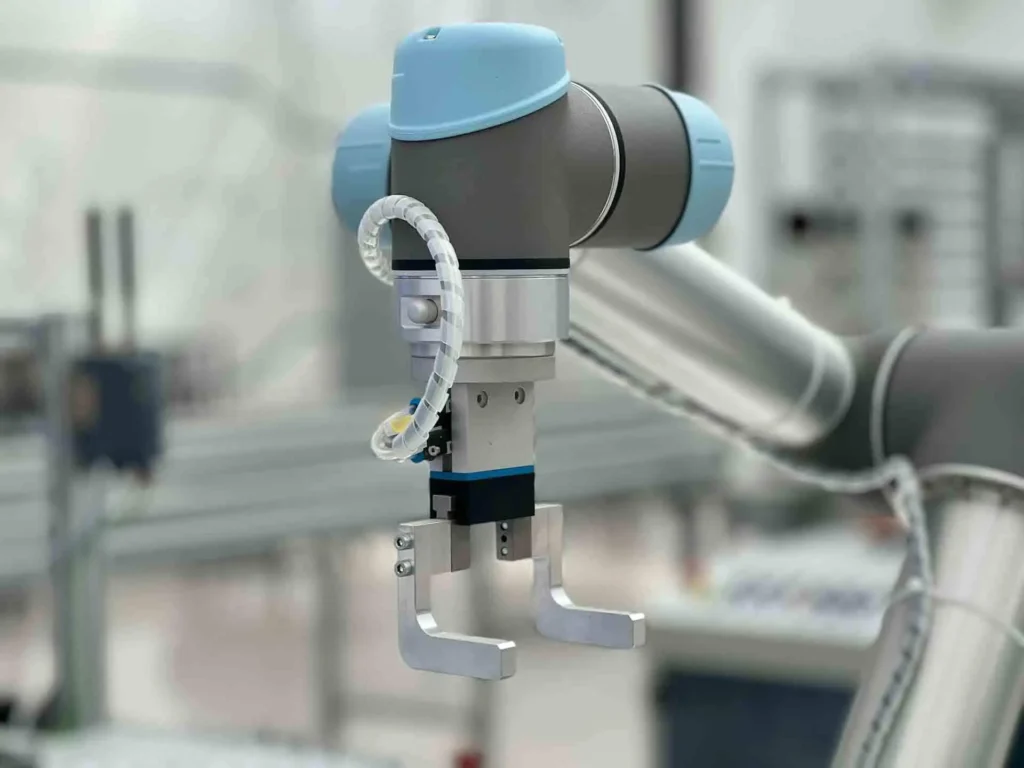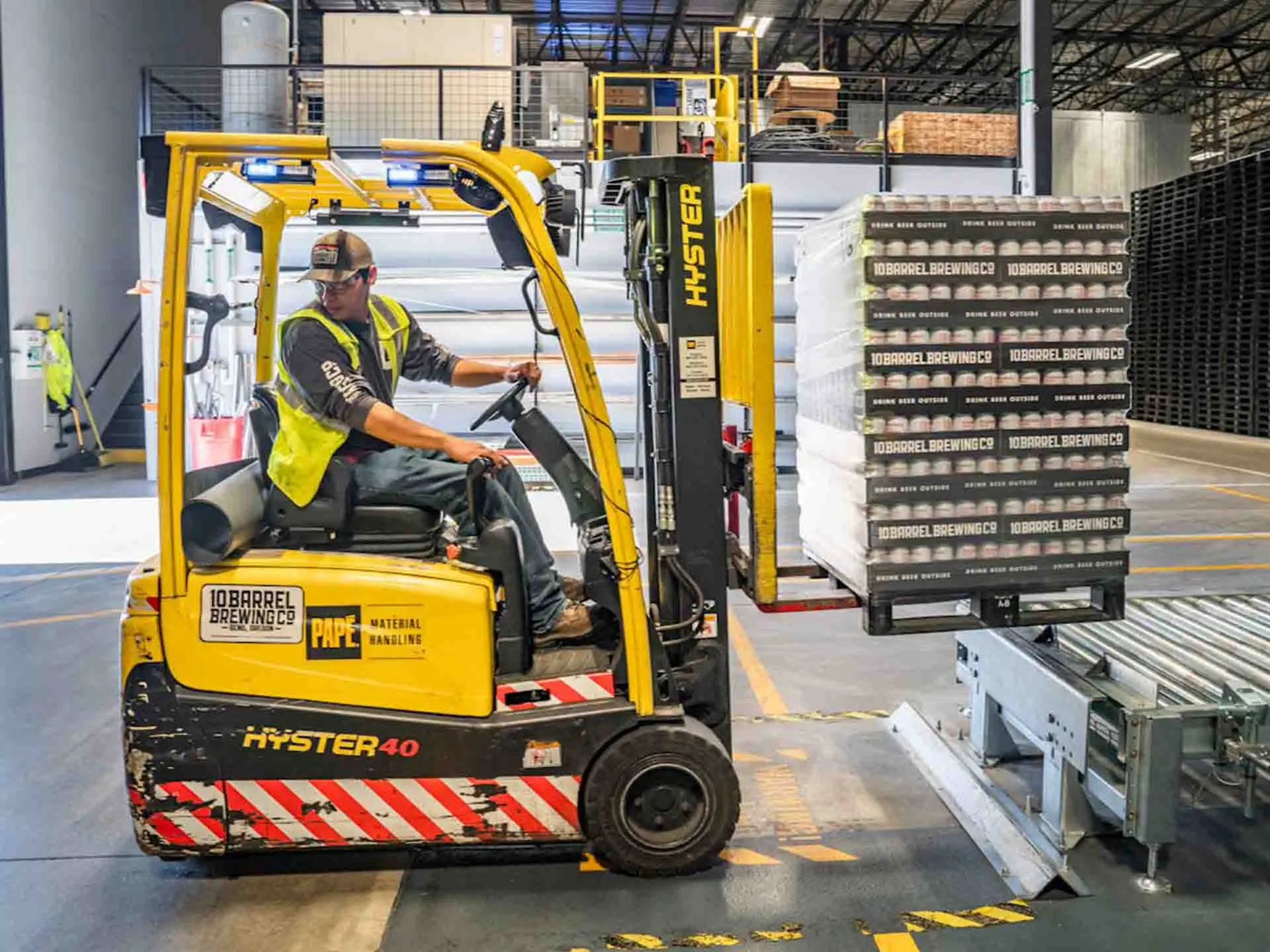AI is everywhere these days, which means its role in the workplace is growing. But what does using AI in the workplace actually mean? Simply put, it’s about using smart technology to handle repetitive tasks and process data to extract information quickly. Automating routine tasks allows your team to focus on strategic thinking and building relationships.
How Is AI Used in the Workplace Today?

When we ask, “How is AI used in the workplace?” we can narrow it down to three main areas:
- Automation: AI takes over routine tasks like data entry, scheduling, and sorting information. This frees up valuable human time for more complex work.
- Insights: AI is a powerful data analyst. It processes large amounts of information to spot trends and predict outcomes. It then uses this information to provide insight into specific issues and suggest a course of action.
- Personalization: AI customizes interactions to meet individual needs, improving both satisfaction and effectiveness – whether in customer engagement or employee recommendations.
By understanding these core functions, we can go from theory to practice. Let’s look at some real-world examples.
1. Transcribing Meetings
We’ve all been in meetings where we’re so busy taking notes that we miss the actual discussion. Several AI tools are changing that. They join your virtual meetings and transcribe conversations in real-time. These tools identify who is speaking and create a summary of each talking point. This ensures nothing gets lost and allows participants to be fully present and engaged.
2. Customer Service Chatbots
AI chatbots and virtual assistants on websites and messaging platforms handle common inquiries around the clock. They track orders and reset passwords at any time of the day or night. Modern chatbots are sophisticated enough to understand context and escalate more complicated issues to a human agent. These AI bots help customers get instant answers and free up support teams for interactions that require more in-depth problem-solving.
3. The Proactive Data Detective
Analytics platforms with embedded AI can automatically spot trends in company data, for instance, spotting a dip in the sales of a product or flagging anomalies such as an unexpected spike in website traffic. This is a prime example of how AI is used in the workplace to equip companies with predictive insights.
4. Non-Biased Recruitment Tools
The initial resume screening process is important but can be prone to unconscious human bias. AI recruiting tools scan hundreds of applications in minutes and identify the most qualified candidates based strictly on the skills and experience outlined in the job description. This creates a more diverse and qualified candidate pool for the interview stage. Recruiters can then focus their skills on assessing the nuances of hiring during interviews, such as cultural fit or soft skills.
5. Inbox Management
Email overload is a universal challenge. AI now prioritizes your most important emails and suggests quick, context-aware replies. By learning your habits and priorities, it acts as a personal assistant, helping you organize your inbox so you feel less overwhelmed and never miss important communications.
6. Writing Assistance
AI writing assistants have become incredibly sophisticated. They correct grammar and spelling, analyze your tone, suggest more concise phrasing, and even help brainstorm and outline documents. This helps improves the quality of every communication and ensures your writing is polished and professional.
7. IT Help
Employee productivity can grind to a halt when technology starts giving problems. Companies are deploying AI-powered internal helpdesks. An employee can ask, “How do I connect to the projector?” or “My software license has expired, what do I do?” The AI provides instant, step-by-step solutions or automatically generates a ticket if human intervention is needed.

8. The Personalized Career Coach
Companies are increasingly using AI within their internal learning platforms to recommend specific training courses and skills development paths for employees. The AI analyzes an employee’s role and completed training, as well as skill gaps mentioned in performance reviews to create a personalized learning path.
How Companies Are Adopting AI Successfully
The most successful AI adoption strategies often start small. Success looks different for every company. A local retail store might start by using an AI tool to manage its inventory and predict popular stock items, while a global financial firm might deploy AI for real-time fraud detection. What matters most is starting with a clear problem statement, for example, “Our sales team spends too much time on manual data entry instead of selling.” From there, find a focused AI tool that solves that specific issue. Openness to experimentation and a willingness to train employees on new tools are the foundation of successful integration.
Ready to Supercharge Productivity? Explore Our AI Workplace Solutions
If you are feeling inspired but overwhelmed by the options, you’re not alone. The massive number of AI tools available today can be daunting. Identifying the right solution for your specific challenges is the first step. We specialize in breaking down this process and helping businesses of all sizes implement the best AI solutions to meet your goals.
Click here to find out how our AI workplace solutions can help your business.
In Summary
Using AI in the workplace is a practical strategy that is already delivering results in businesses of all sizes. By starting with a clear goal and understanding the functions of AI, you can use this technology to boost efficiency and profitability. The future of work is collaborative – a partnership between human intuition and artificial intelligence. The time to start building that partnership is now.
Recent Posts
-
Published on: November 11, 2025
-
Published on: November 4, 2025
-
Published on: October 21, 2025





